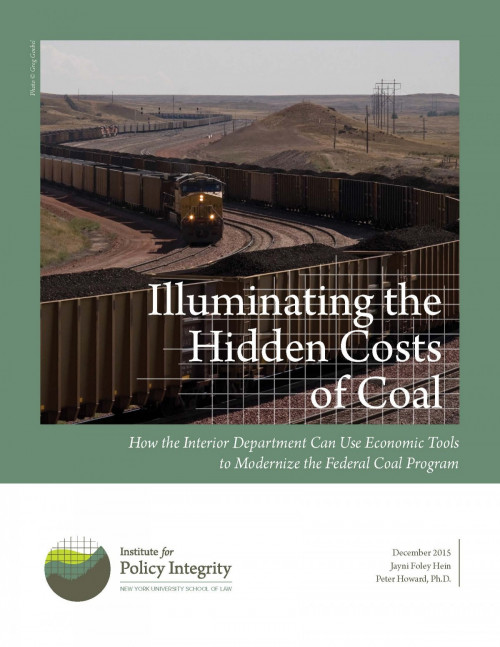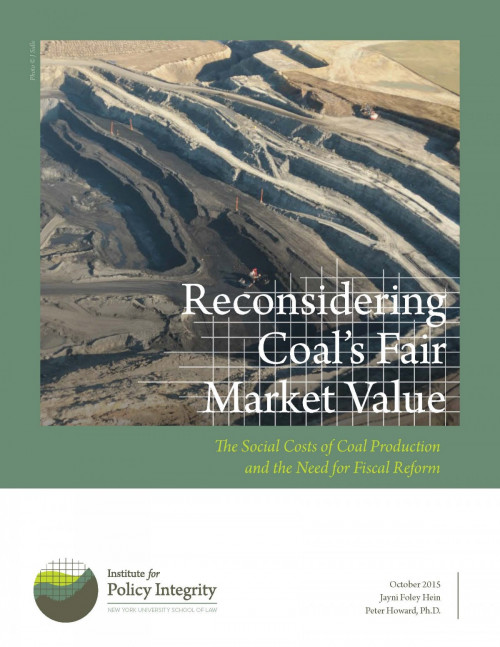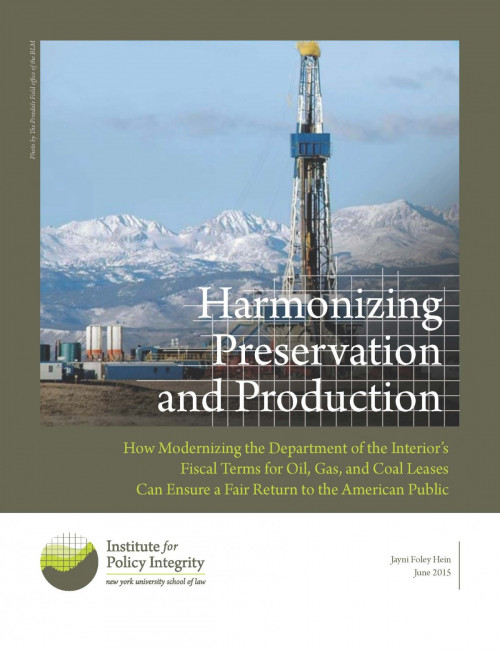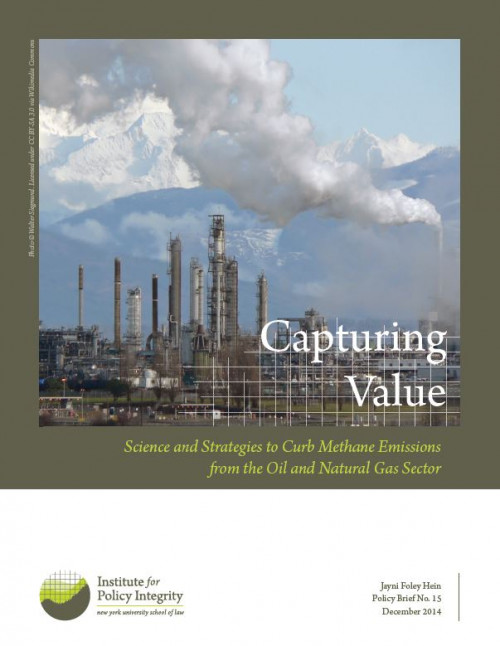-

Illuminating the Hidden Costs of Coal
How the Interior Department Can Use Economic Tools to Modernize the Federal Coal Program
This report analyzes the hidden costs of coal production, and suggests updates that the Department of the Interior could make to modernize the federal coal program and earn “fair market value” for taxpayers, as required by law.
-

Reconsidering Coal’s Fair Market Value
The Social Costs of Coal Production and the Need for Fiscal Reform
Coal mining on federal lands accounts for more than 40 percent of all coal produced in the United States. But outdated policies, longstanding loopholes, and prevalent environmental externalities keep American taxpayers from receiving their fair share of value from federal coal leases.
-

Harmonizing Preservation and Production
How Modernizing the Department of the Interior’s Fiscal Terms for Oil, Gas, and Coal Leases Can Ensure a Fair Return to the American Public
Leasing federal lands for drilling and mining generates a huge amount of revenue for the United States, but the Department of the Interior, which oversees these leases, uses an antiquated fiscal system that deprives taxpayers of hundreds of millions of dollars. Our report analyzes how the fiscal terms for oil, gas, and coal leases could be modernized to ensure a fair return to the American public.
-

Capturing Value
Science and Strategies to Curb Methane Emissions from the Oil and Natural Gas Sector
Methane, the primary component of natural gas, is a potent climate pollutant up to 86 times more powerful than carbon dioxide on a 20-year timeframe. Currently the United States loses at least 1 to 3 percent of its total natural gas production each year when methane is leaked or vented to the atmosphere. Federal regulations could reduce methane emissions by up to 50 percent at little or no net cost, using available technologies.
-
_500_370_90.jpg)
Patience is a(n Economic) Virtue
Real Options, Natural Resources, and Offshore Oil
Consideration of real options is necessary to maximize economic return from non-renewable natural resource extraction. But ecisions over drilling are often framed as a now-or-never choice, so the option to wait (or “real option” value) is improperly treated in administrative processes that determine whether, when, and how offshore oil resources will be tapped.
Viewing all publications in Natural Resources
